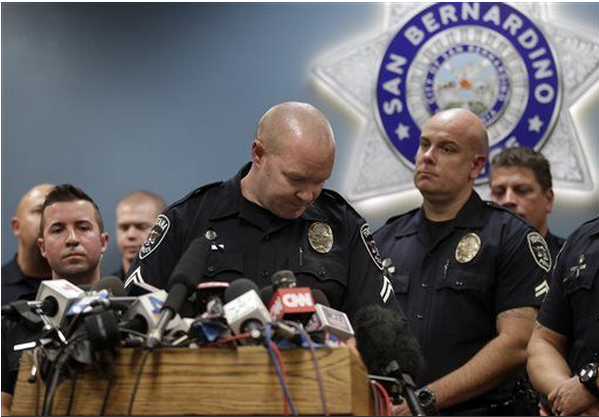FBI Director James Comey Jr. testifies at a Senate Judiciary Committee hearing on Capitol Hill in Washington December 9, 2015. John McCain (R-Ariz.), who said after the Paris attacks that the status quo was “unacceptable”.
He said the Federal Bureau of Investigation was focused intently on the threat of homegrown violent extremism, “the radicalization in place” of people who become inspired, influenced and/or directed by a terrorist group or extremists.
Though he said the Obama administration was not seeking to address concerns over data encryption on smartphones, he said he remained concerns that criminals, terrorists and spies were using such technology to evade detection. This is why technologists must continue to dispel the myths behind the arguments against encryption. ”
This isn’t going to solve the whole problem”, Comey said. “I’m not questioning their motivations”, Comey said.
In response Comey appeared to counter his previous statement on the lack of a “technical issue”, and essentially admitted he doesn’t know how companies would comply with the order, but it would be their burden to figure it out. “In fact, the makers of phones that today can’t be unlocked, a year ago they could be unlocked”.
He also says tech companies should just accept that they would be selling less secure products.
William Binney, veteran NSA codebreaker and early whistleblower, said good intelligence is much more a matter of collecting the destinations and origins of communications – the “metadata”, which will not work if encrypted – than of breaking into people’s private messages to see what’s there.
Comey said he is engaged in ongoing and productive conversations with Silicon Valley. “I promise you that’s the way we conduct ourselves”. “We care about the same things”.
One of the attackers “exchanged 109 messages with an overseas terrorist” on the morning of the shooting, Comey said. “That is a big problem”, he said.
If firms have already decided that strong encryption is in their best interest, Sen. “Encryption is always going to be available to the sophisticated user”. FaceTime, Apple’s video call feature, has had end-to-end encryption since 2010.
In the wake of National Security Agency contractor Edward Snowden’s revelations about mass surveillance in 2013, there have been several discussions about governments’ need to be able to look at citizen data and individual privacy. Feinstein offered to pursue legislation herself, citing fear that her grandchildren might start communicating with terrorists over encrypted Playstation systems. ”
US tech companies do not want to be the middleman between law enforcement and their customers”, observed Utah Republican Orrin Hatch to Comey, who said he “wasn’t sure what [Hatch] meant by “middleman”. “Our ability to monitor them has not kept pace”. “We ought to remember the limits on what we can do legislatively, it wouldn’t necessarily fix the problem”. But law enforcement agents still have powerful tools to surveil suspects and gain information on terror plots.

